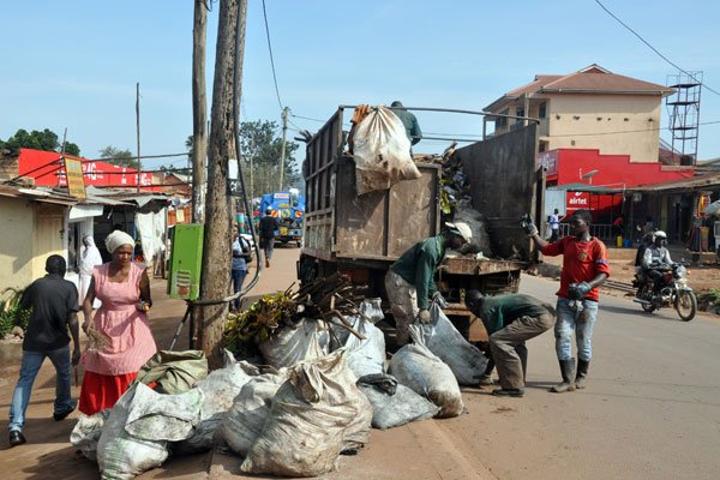Africa-Press – Uganda. The Government of the Republic of Korea, through the Korea International Cooperation Agency (KOICA), has allocated $2.2m (About Shs7.7b) towards strengthening the capacity for solid waste and faecal sludge management in the Kampala Metropolitan Area.
The grant will support Global Green Growth Institute (GGGI) and its partners, including Ministry of Water and Environment, National Water and Sewerage Cooperation, as well as Kampala Capital City Authority (KCCA) and other urban municipalities, to develop an inclusive and sustainable solid waste and faecal sludge management strategy and differentiated implementation plans for the city and surrounding municipalities.
The overall objective of the project is to enhance solid waste and faecal sludge management in greater Kampala while increasing access to sustainable services and creating green jobs through the waste-to-resource approach.
The KOICA country director, Mr Taeyoung Kim, said the project, which will run from 2021 to 2023, in the first of two phases will focus on development of strategies, implementation plans and technical designs for proposed interventions in selected areas.
The second phase will then focus on actual implementation of the proposed solutions that can serve as a model and be replicated in other parts of the country.
“In line with the Government of Uganda’s strategy to mobilise increased financing and support towards sustainable and inclusive socio-economic development of greater Kampala, this project will focus on strengthening solid waste management and faecal sludge management capacity based on inclusive and decentralised solutions that will enhance sustainability and job creation,” Mr Kim said.
Once completed, the project is expected to benefit at least 100,000 households directly from the waste collection and treatment facilities that will be established.
During the second phase most of the population in Kampala Metropolitan Area will benefit indirectly from reduced contamination of water, land and wetland resources.
KOICA is the official development aid implementing agency of the government of the Republic of Korea.
The Kampala Metropolitan Area with a population of approximately four million people spread over 970 square km, is home to about 10 per cent of the national population and contributes almost 31.4 per cent of the overall national Gross Domestic Product ( GDP) and 65 per cent of non-agricultural GDP.
This entire population is served by only one licensed solid waste disposal and treatment facility in Kiteezi, Wakiso District, which is operating beyond capacity.
According to the draft National Urban Solid Waste Management Policy, the rate of solid waste generation in Greater Kampala in 2015 was 3,206 tonnes per day and is expected to increase to 4,739 tonnes per day by 2030.
It is estimated that only 45 per cent of the total waste generated in greater Kampala is being collected and managed properly by KCCA and its partners.
According to the Kampala Sanitation Master Plan (2040), only seven per cent of the population is covered by sewerage systems in Kampala and only five per cent in Entebbe.
The remaining population relies on on-site sanitation, mostly traditional pit-latrines and improved latrines, as well as septic tanks, especially in the middle to high income population.
The on-site sanitation facilities are generally not properly maintained and emptied, especially in the low-income informal areas because of high costs and difficulties in accessing cesspool trucks. [email protected]






